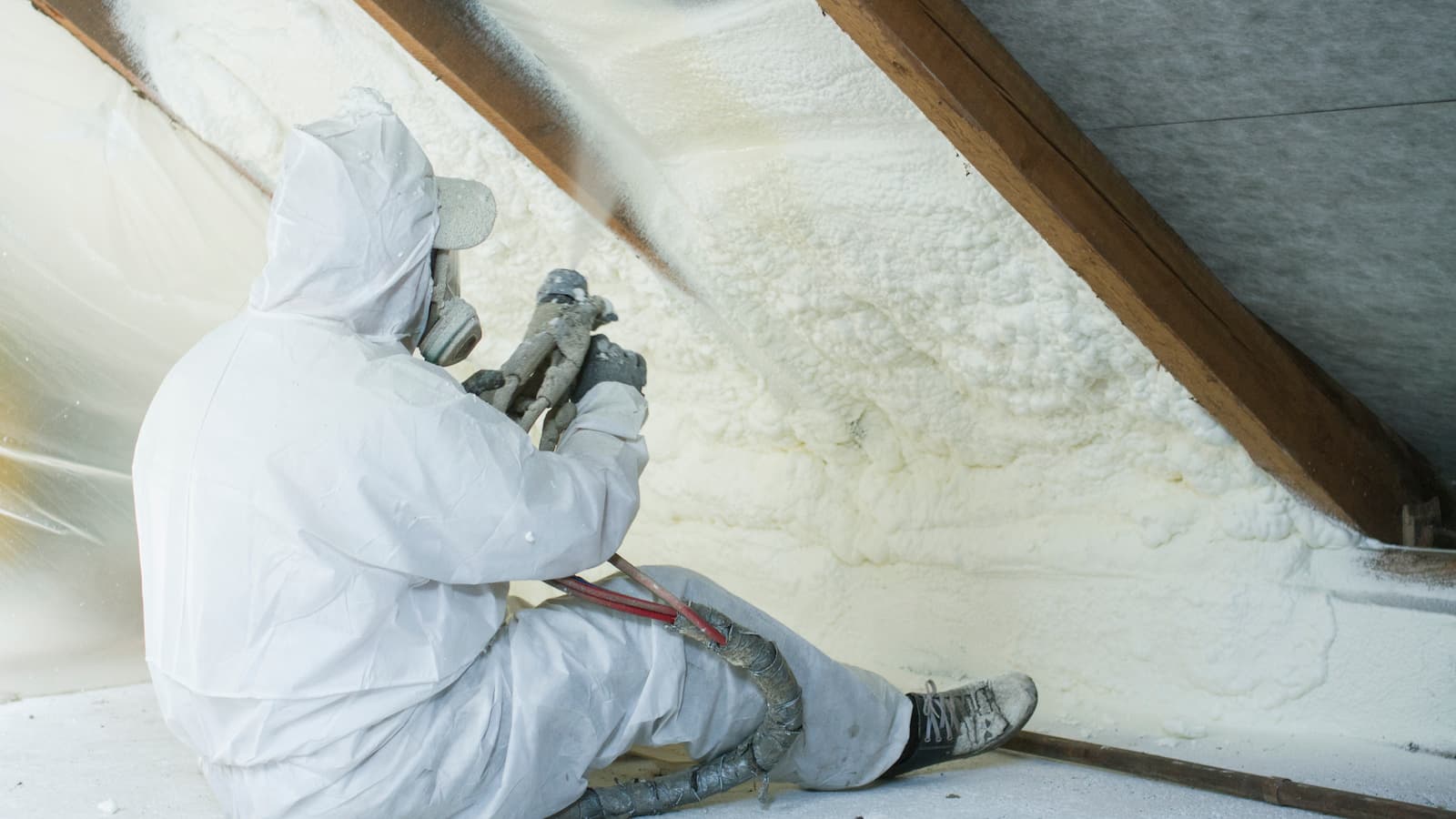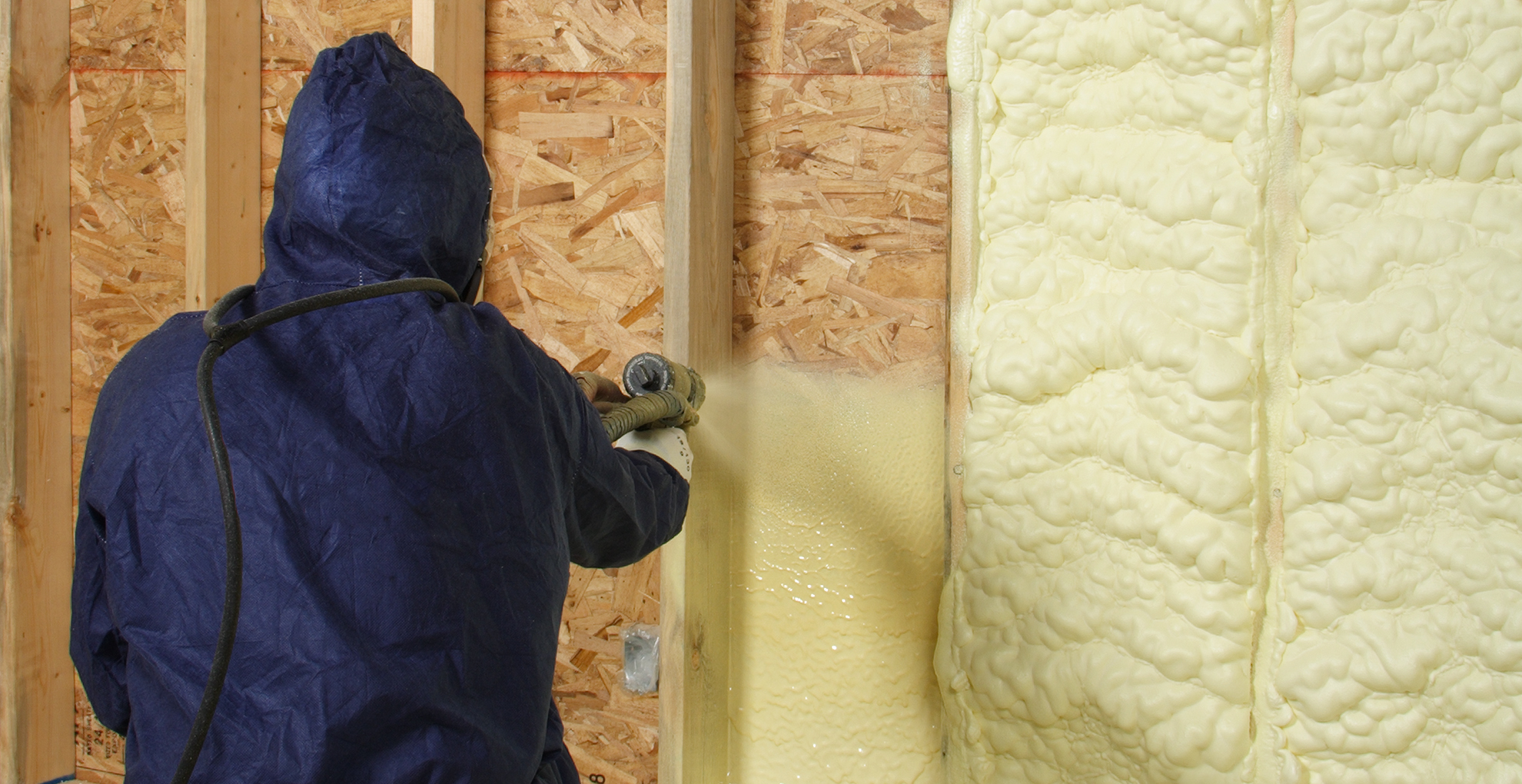Does spray foam insulation really prevent you getting a mortgage? We asked four major mortgage lenders
With plenty of misinformation on the topic of spray foam insulation, we decided to ask mortgage lenders if it ever stops them offering homeowners a mortgage

You might have heard that spray foam insulation in a property can affect your chances of getting a mortgage or invalidate your home insurance, but is this true?
Spray foam insulation has gained popularity as an energy-efficient solution for homeowners, but numerous reports have come out that it can have significant implications for mortgages and home insurance.
We asked the largest mortgage lenders and home insurance providers in the UK about their stance on spray foam insulation and any tips they have for homeowners thinking about installing it.
Potential negative effects of spray foam insulation on homes
While spray foam insulation can improve a home's energy efficiency, it also comes with potential downsides that may affect a property’s value and structural integrity.
The Royal Institution of Chartered Surveyors (RICS) warns that "the presence of spray foam may affect a surveyor’s valuation of a property, especially if it has been applied incorrectly."
One of the key concerns is that spray foam creates an airtight seal, which can trap moisture and lead to condensation. Over time, this can cause timber supports in the roof to rot, compromising the structure.
Another issue is structural stress. Closed-cell spray foam sets rigidly and can add weight and pressure to roof supports, sometimes leading to distortion or even damage.

What mortgage providers say about spray foam insulation
Many mortgage providers are cautious about lending on homes with spray foam insulation, particularly for older properties. Here’s what some major lenders have said when we spoke to them:
- Santander: "The presence of spray foam does not prevent a Santander mortgage application, with properties assessed on a case-by-case basis. A surveyor may need further information, such as a Structural Engineer’s report, to fully assess the property as part of the mortgage application process."
- HSBC: "There are risks attached to the use of spray foam insulation, which include the potential for moisture to be trapped against roof timbers and for significant structural defects to remain concealed. Spray foam to roof spaces is unacceptable for any listed buildings, and we will not provide lending against them. For other properties, it may be acceptable if a suitable specialist report (in accordance with PCA protocols) and a warranty is provided."
- Lloyds: "We do not have a ban or block to lending on homes with spray foam insulation; we look at each case on its own merits based on the surveyor’s report."
- Nationwide: "We will lend on properties with spray foam insulation. However, in cases where the installation doesn’t comply with manufacturer’s recommendations, there is a risk of damage to the roof structure. As such, where a valuer sees evidence of spray foam, we require evidence it has been installed correctly before lending."
A BBC report from last November found that some institutions, including TSB Bank, Skipton Building Society, Co-operative Bank, Principality and Aviva refuse to lend on properties with spray foam insulation in the roof space.
What insurance providers say about spray foam insulation
Home insurance providers also take varied approaches to spray foam insulation.
A spokesperson for The AA stated: "We don’t ask about insulation type when quoting policies, so there’s no risk acceptance based on spray foam alone. Similarly, we haven’t declined any claims due to the insured installing spray foam insulation."
However, they advised that homeowners should seek specialist advice before installation to ensure it is appropriate for their property and won’t create future issues whilst warning about rogue spray foam operators.
Some insurers, such as Hastings Direct and Markerstudy Insurance Services, declined to comment on their stance.
If you are considering spray foam insulation, consult with a specialist to assess what type of roof insulation your home’s needs.
Before installation, check with mortgage providers to ensure it won’t affect your ability to secure financing or remortgage your home in the future.
Also, review your home insurance policy to confirm that spray foam insulation won’t impact coverage or claim eligibility. If purchasing a home with existing spray foam insulation, request surveyor and specialist reports to identify potential structural issues.
Understanding these factors can help homeowners make informed decisions about spray foam insulation and avoid potential financial or structural complications in the future.
Get the Homebuilding & Renovating Newsletter
Bring your dream home to life with expert advice, how to guides and design inspiration. Sign up for our newsletter and get two free tickets to a Homebuilding & Renovating Show near you.

News Editor Joseph has previously written for Today’s Media and Chambers & Partners, focusing on news for conveyancers and industry professionals. Joseph has just started his own self build project, building his own home on his family’s farm with planning permission for a timber frame, three-bedroom house in a one-acre field. The foundation work has already begun and he hopes to have the home built in the next year. Prior to this he renovated his family's home as well as doing several DIY projects, including installing a shower, building sheds, and livestock fences and shelters for the farm’s animals. Outside of homebuilding, Joseph loves rugby and has written for Rugby World, the world’s largest rugby magazine.
